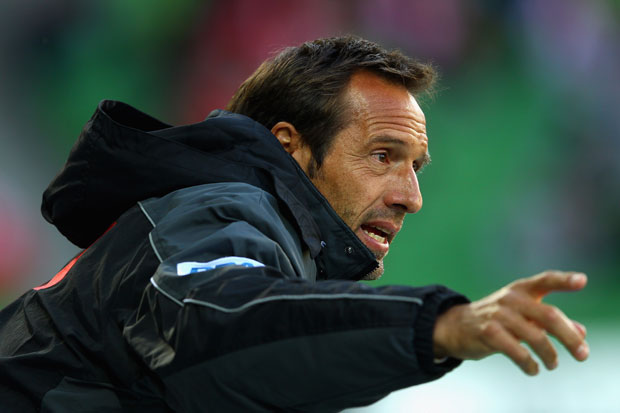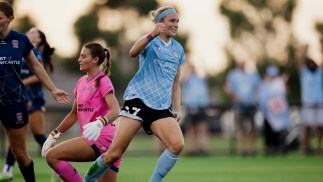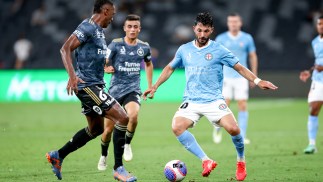Over the course of 90 minutes, a team’s destiny is often decided by the opportunities it spurns as opposed to those grasped with both hands.
Over the course of 90 minutes, a team-s destiny is often decided by the opportunities it spurns as opposed to those grasped with both hands.
Such a paradigm was on full display during Melbourne Heart FC-s 1-3 loss to Adelaide United on Wednesday, as the home side squandered countless chances to fall to its first loss in six matches.
Boasting one of the most potent attacking forces in the league, Heart-s front line has been rightly lauded for its versatility and cutting edge.
And while Heart was largely in the ascendency for much of the contest, the team-s renowned killer instinct was sorely absent, resigning the Club to its first loss since November.
Head Coach John van ‘t Schip lamented his team-s inability to find the back of the net, saying he felt Heart could have overrun Adelaide were they able to halve the deficit midway through the second half.
“Alex (Terra) had a good header, Eli (Babalj) had a good opportunity from nearby that he hit over the crossbar and Curtis (Good) had a very good opportunity with a shot from nearby,” van ‘t Schip said.
“Those were all very clear goal chances but you need a little bit (of) luck to get back into the game and maybe if we had made that 2-1 earlier on a lot still could have happened but it didn’t and they went away with a third goal.”
Heart though arguably could and should have been ahead after five minutes when Mate Dugandzic appeared to have been fouled in the penalty area.
The incident precipitated a spell of dominance from the home side, which sought to clearly assert its authority over a United outfit which appeared to be teetering on the brink.
But having managed to weather the storm, Adelaide forced its way back into the contest, opening the door for an unlikely triumph.
Van ‘t Schip said: “You know if you don’t continue playing like that and don’t go ahead that the opponent slowly can come back into the game.
“If you look at that part (of the game), we were playing very well, aggressive, they couldn’t come out of their defence and could hardly keep the ball in possession.
“But a game is 90 minutes and part of it is that we helped them into the game ourselves with a penalty, of course, and I must say in that part they were already playing a little bit better, coming more into the game and we couldn’t really come back to that play that we had (in) the first part.”
“Overall they were playing a little bit smarter.”




